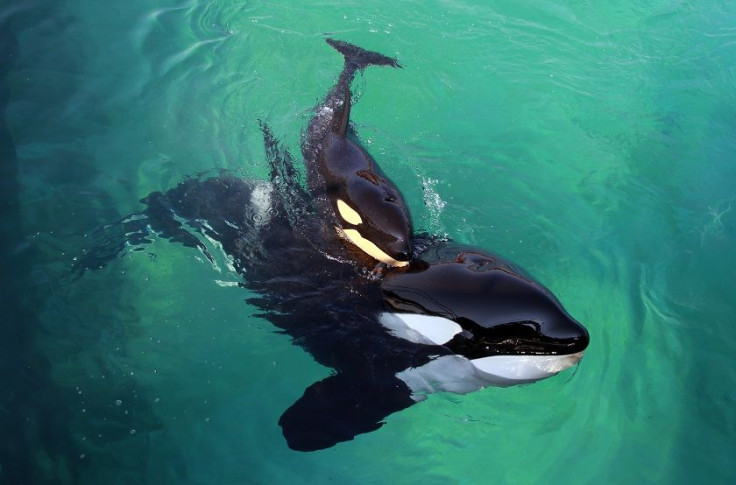Killer Whales Are "Momma's Boys": Why Middle-Aged Male Whales Are 14 Times More Likely to Die if Mom's Not There

Despite their menacing name and their fearsome reputation, killer whales are actually just momma's boys.
Scientists discovered that mother killer whales have the longest menopause compared to any non-human species and that may be because they can care for their adult sons.
While killer wales can live longer than 90 years old, females stop reproducing in their thirties and forties. The orca's extended menopause has been a long-standing mystery, and that only a few other species, including humans, stop female reproduction part-way through their lives.
The team from the Universities of Exeter and York analyzed 36 years of data from two killer whale populations in the North Pacific, and found that the length of time a female lived after she went through menopause significantly influenced the survival of her offspring.
The findings, published in the journal Science, showed that while young males were three times more likely to die the year after their mother's death, older males over 30 years old were even more vulnerable, with the risk of dying within the following year increasing by more than 14 times.
While females also stayed with their mothers, results showed that they were much less dependent, with a female over 30 only having a three-fold greater chance of death after her mother died.
"Our analysis shows that male killer whales are pretty much mummy's boys and struggle to survive without their mother's help," Dr. Dan Franks, from the Department of Biology at the University of York, said in a statement. "The need for mothers to care for their sons into adulthood explains why killer whales have evolved the longest post-reproductive lifespan of any non-human animal."
Researchers say that killer whales live in "unusual social groups" with offspring staying with their mother in a single group throughout their lives. Researchers theorize that in order to have the best chance of spreading their genes, mothers focus their efforts on their sons.
"Both humans and killer whales are unusual in having a long menopause," co-author Dr. Darren Croft, from the University of Exeter, said in a statement. "Although they share this trait, the way older females benefit from ceasing reproduction differs, reflecting the different structure of human and killer whale societies."
"While it is believed that the menopause evolved in humans partly to allow women to focus on providing support for their grandchildren, it seems that female killer whales act as life-long carers for their own offspring, particularly their adult sons," he added. "It is just incredible that these sons stick by their mothers' sides their entire lives in the original family with their grandmothers."
Robert Pitman, a marine ecologist at the National Marine Fisheries Service in San Diego, California, who was not involved with the study, told Science Magazine that killer whales make "good proxies" for understanding the advantages of having human grandmothers.
"For them, just like us, family matters," Pitman said, according to Science.



























